|
One of our most important jobs as educators is to elevate our students’ voices. Our classrooms should be places were students feel that their voices will not only be heard, but that they will make a difference. I want them to consider their roles in their community and world. Right now, West Virginia is facing some extra-ordinary challenges: a struggling economy, a population decline, an opioid epidemic. Young people in West Virginia are discouraged. They constantly hear negative things about our state, and they ignore or don’t know is that West Virginia has a rich literary and art tradition. That our state exists because Mountaineers rejected slavery and valued freedom. Activists and artists are working tirelessly to create accurate reflections of the complexities and contradictions of our state and culture, and preserve our rich, history and traditions. This year I decided to try something. I wanted find a way to not just engage my students in conversations about West Virginia and our struggles and successes, but I wanted them to be thinking about their place in West Virginia—how as young people they have a unique voice and perspective regarding how fix problems in our region. I believe that West Virginia’s path forward begins in our classrooms. (To read an Op-ed Karla Hilliard and I wrote about this, click HERE.) This year, I taught my introduction to rhetoric to my Advanced Placement Class through the lens of Appalachian studies. You can see an overview of the unit HERE. The goals of the unit are (like West Virginia) diverse and multi-faceted. I wanted students to master the basics of rhetorical analysis, but also immerse themselves in the rhetoric surrounding our region. The final culminating project in this unit was for the students to apply what they learned about crafting effective arguments, and create a proposal to present at the 40th Annual National Appalachian Studies Conference. We approached the task as an exercise in rhetoric. I asked the student to first choose something we studied in the unit that resonated with them. We covered a wide range of topics related to Appalachia: literature, poetry, environmental issues, the opioid epidemic, diversity, veterans, and stereotypes. Then, students were split into teams had to write a proposal to present their chosen topic at the ASA conference. I asked the students to consider their unique voices. They are teenagers in Appalachia today, and they have a chance to share a concern or a topic with a conference of academics, writers, and activists. We read a few sample proposals and studied the conference website, program, and theme. I asked them to think about their proposals as persuasive essays and apply what they learned through our study of effective arguments. The kids had a week to put together a “pitch” and write their proposals. They then presented their proposals to the whole class. I chose what I thought were the “top 10” pitches and gave them to a panel of teachers and administrators in my building to evaluate. They narrowed it down to four that they thought were the exemplars in terms of executing the task. I put these four exemplars and my unit presentation together as a panel proposal for the conference, submitted it not really imagining that we would actually get accepted. But then we did! And not only did we get accepted, the conference committee emailed me to say how excited they were the students would be attending. We were going to Blacksburg. Below are three take-aways from taking 13 teenagers to present at the 40th Annual Appalachian Studies Conference at Virginia Tech in Blacksburg, VA on March 9-12: 1. Kids rise to the occasion. My students prepped and prepared like professionals. I required them to meet with me bi-weekly to show me the progress of their project, and then we had a “dress rehearsal” the week before. They worked so hard. They understood the gravity of the opportunity they were being given, and their presentations were thoughtful, smart, and executed with more grace and poise than many presentations I’ve had to sit though given by adults. They blew everybody away. We were also asked to sit in on a round-table discussion on youth and activism through art, and the authenticity and honesty of my students brought me and the rest of the room to tears. They were rock stars. 2. There is a wealth of educator resources at this conference! Not only did I learn about several new pieces of Appalachian literature (read about Robert Gipe’s novel, Trampoline HERE), but my students and I learned about several incredible programs, organizations, and educational groups who care deeply about and are working on many of the same things we were discussing in our own presentation. And the authors and artists! My students were in the same room as Silas House, Jason Howard, Roger May, and Nikki Giovanni. Roger May is not only a gifted artist, but he is also the director at Appalachian South Folklife and the Looking at Appalachia project, and a generous and kind human. Here he is taking time out of the opening of his own gallery show to answer my students’ questions about his photography. And here is the incomparable Nikki Giovanni. Giovanni was brilliant, funny, honest, and by far one of the highlights for my students. 3. Young people want their voices to be heard. My students had the opportunity to participate in discussions about activism, art, and literature. And because having high school students actively participate in this conference is a bit of an anomaly, they were encouraged to speak up and share their perspectives and opinions. What I noticed was a maturity and a sense of importance settle over my students that I had not previously seen. They reveled in having adults who were not their teachers or parents, care about what they thought. I realized that giving them this opportunity to simply be heard was one of the most important and powerful components of this activity’s success. For more reflections on this wonderful weekend, you can check out my Twitter feed @jessica_salfia, and look for the #ASA2017.
WVCTE is wondering... How do you incorporate ways for your students to share their voices or impact their communities in your classroom?
0 Comments
|
AuthorsMeet our contributing writers here! Archives
August 2017
Categories
All
|
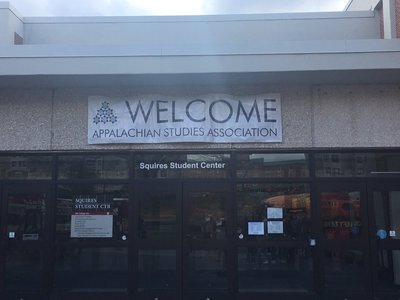
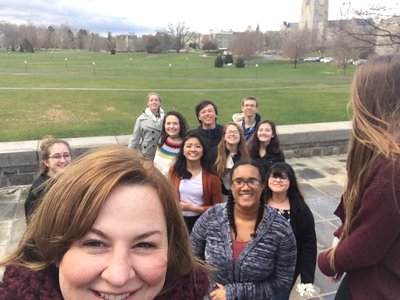
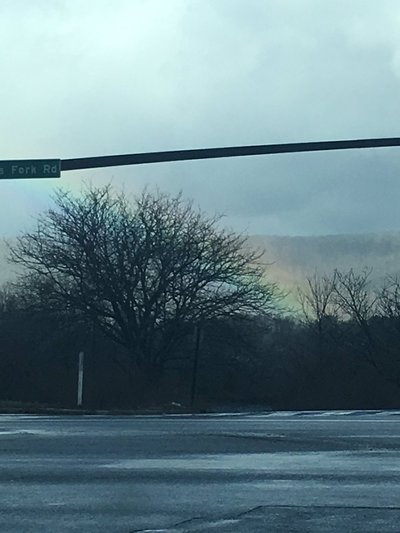
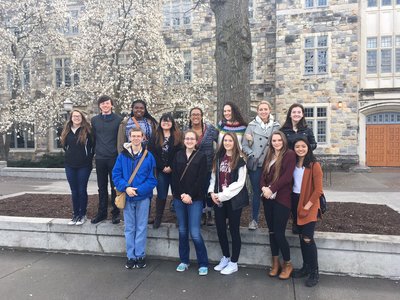
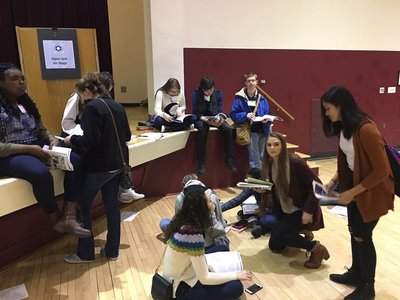
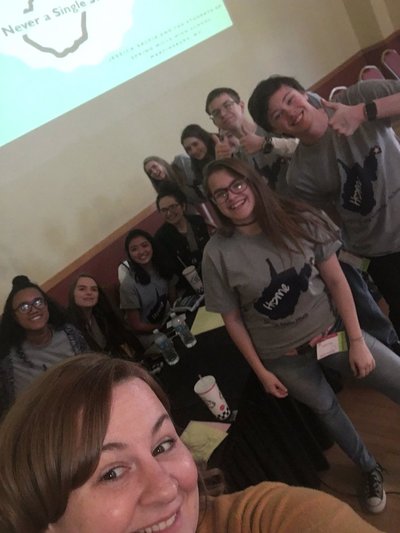
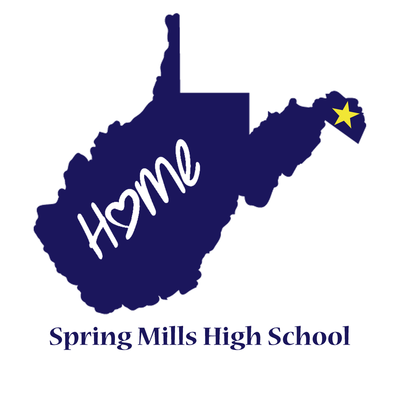
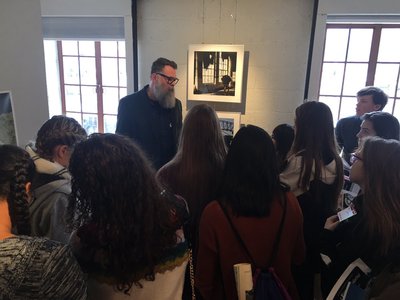
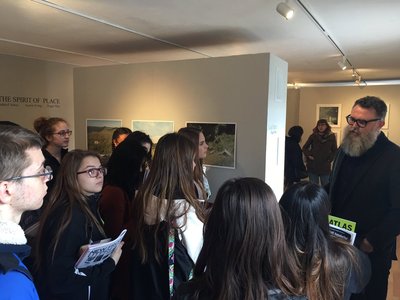
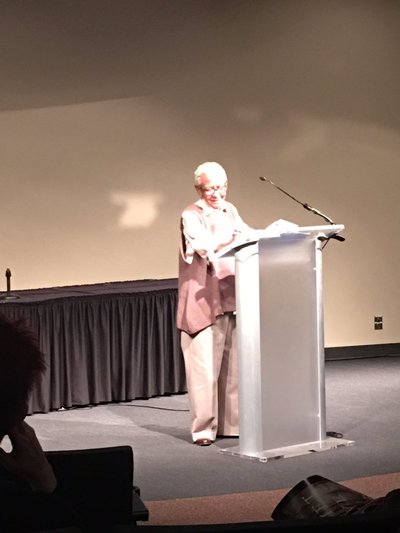
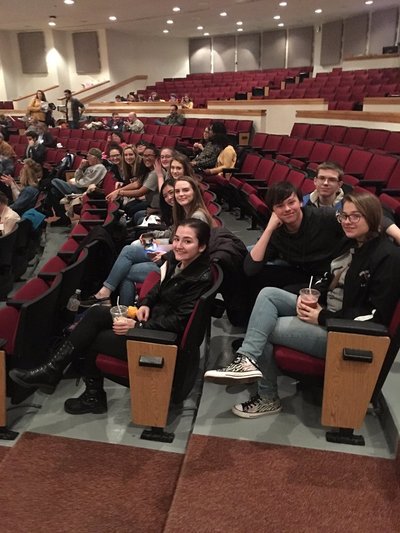
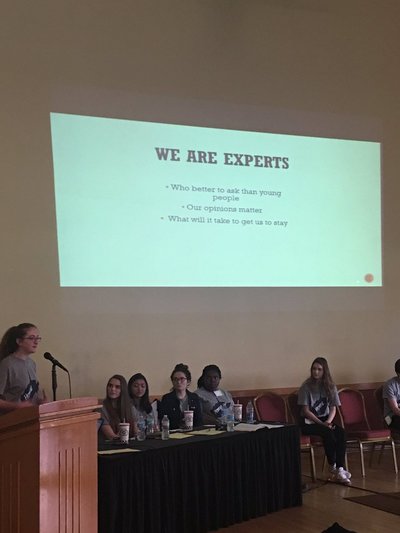
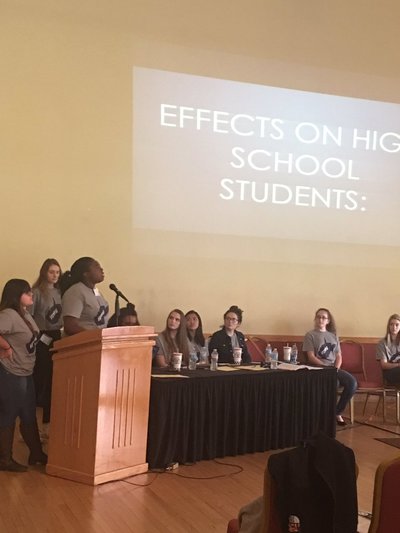
 RSS Feed
RSS Feed
